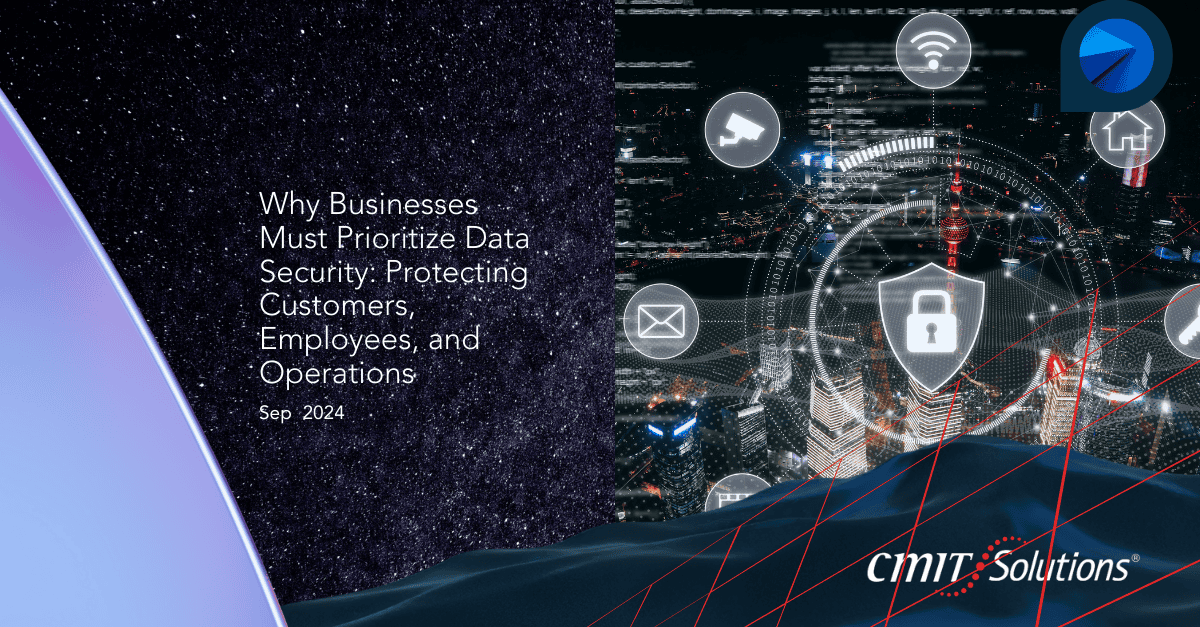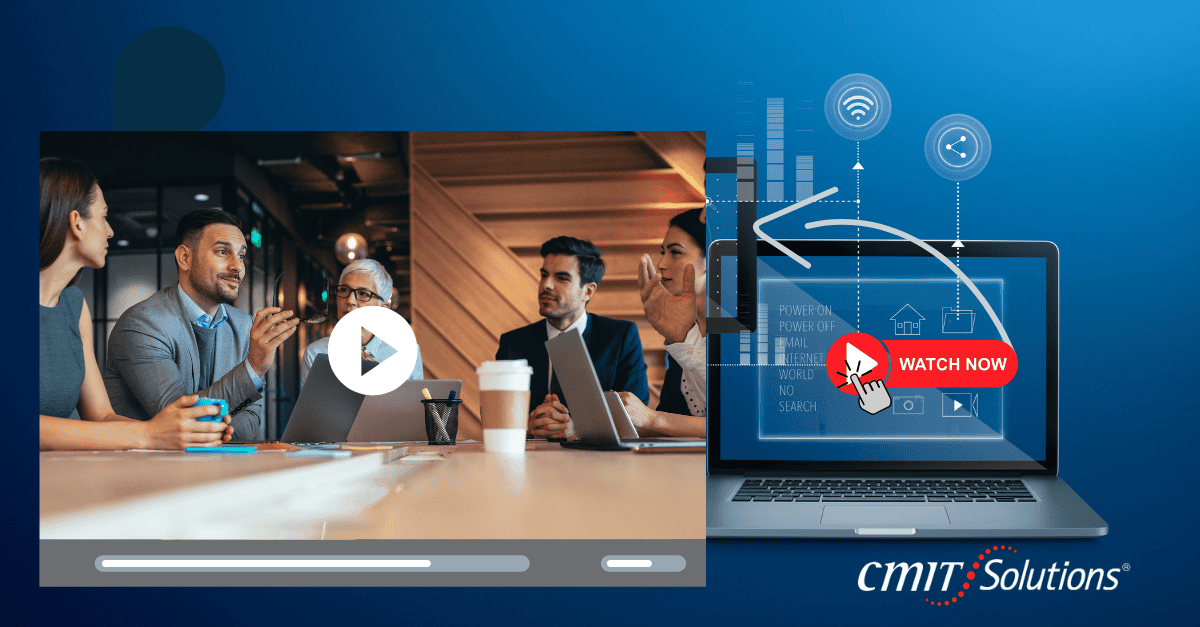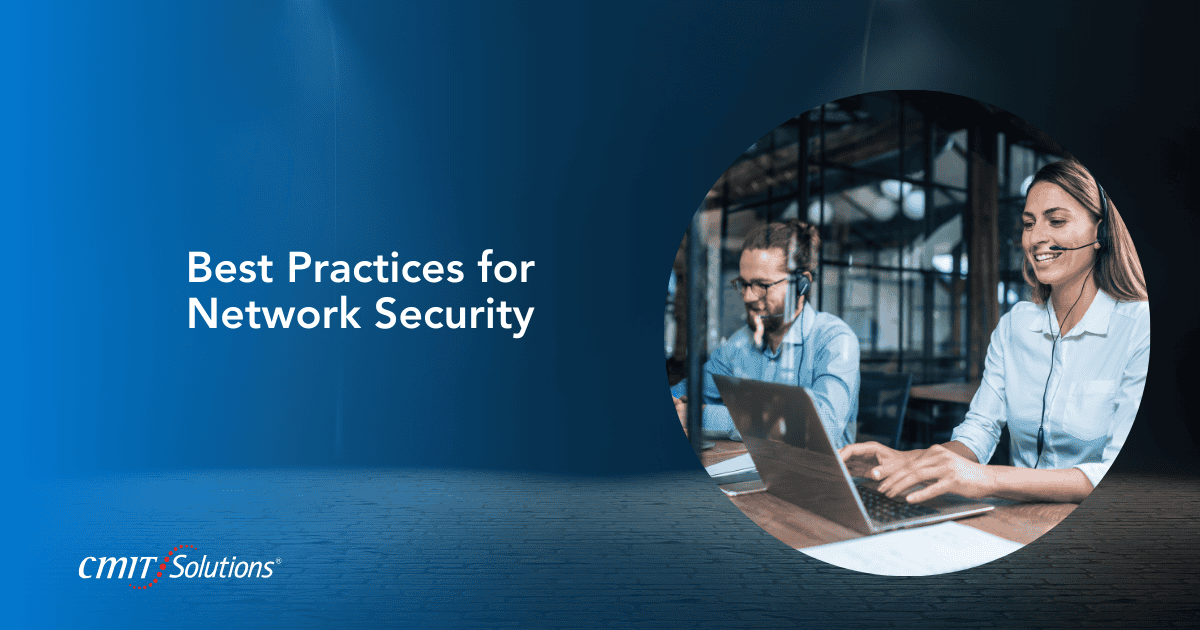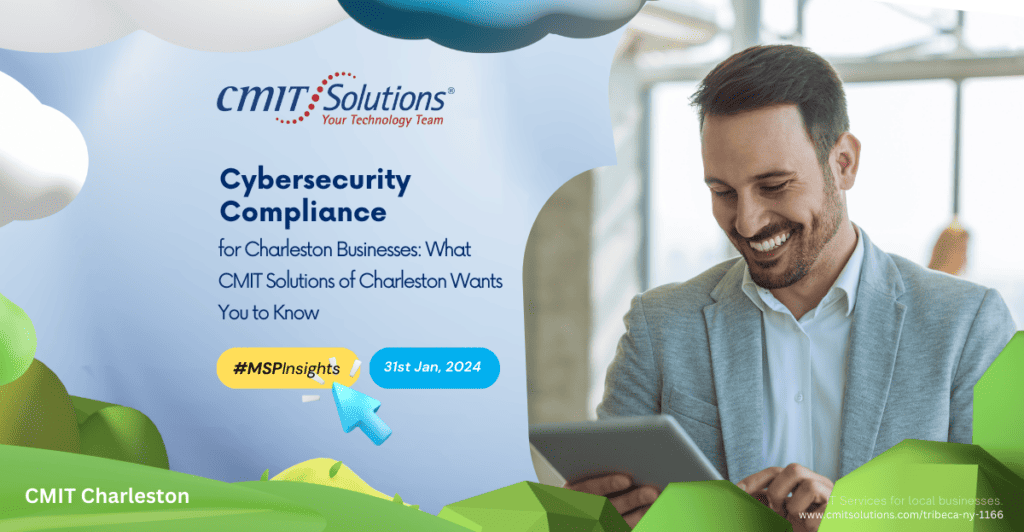In the digital age, data is one of the most valuable assets a business can possess. Whether it’s customer information, employee records, or sensitive operational data, businesses must safeguard this information from the ever-increasing threat of cyberattacks. Cybercriminals are becoming more sophisticated, and the potential for devastating financial and reputational damage makes data security a necessity, not a luxury. For companies of all sizes, protecting data is critical to maintaining customer trust, ensuring business continuity, and protecting employees and operations.
At CMIT Solutions of Charleston, we specialize in delivering comprehensive cybersecurity solutions tailored to meet the unique needs of businesses. Our team is committed to helping you protect your most valuable assets. This blog will explore the growing threat of cyberattacks, common types of cyber threats businesses face, and best practices for network and data security that every organization should implement.
The Growing Threat of Cyberattacks
The digital landscape is becoming more dangerous as cybercriminals develop increasingly sophisticated tactics to exploit business vulnerabilities. Cyberattacks are now more prevalent and damaging than ever. Ransomware attacks, which involve hackers encrypting your data and demanding a ransom for its release, surged by 68% last year alone. The average cost to businesses of such attacks has soared to over $5 million per incident.
Small businesses are particularly vulnerable due to limited resources to implement robust security measures. A data breach can cause irreparable damage by eroding customer trust, disrupting operations, and harming the company’s reputation. At CMIT Charleston, we understand these risks and provide proactive data protection strategies that safeguard businesses from catastrophic data loss.
Common Types of Cyberattacks
Understanding the nature of cyber threats is the first step to defending against them. Businesses are frequently targeted by a variety of cyberattacks, each posing unique challenges. Below are some of the most prevalent:
1. Phishing Attacks
Phishing attacks occur when cybercriminals send deceptive emails, texts, or websites that trick individuals into providing sensitive information like passwords or credit card details. These attacks are a leading cause of data breaches, often disguised as legitimate communications.
2. Malware
Malware encompasses malicious software such as viruses, trojan horses, spyware, and worms. Once malware infiltrates a system, it can wreak havoc, including stealing data, disrupting operations, or damaging entire networks.
3. Ransomware
Ransomware is a particularly harmful form of malware. It encrypts a business’s files, rendering them inaccessible until a ransom is paid. The aftermath of ransomware attacks is often severe, leading to lost data, halted operations, and significant financial losses. We help businesses defend against ransomware with our robust cybersecurity solutions.
4. Distributed Denial-of-Service (DDoS) Attacks
DDoS attacks flood a network or server with excessive traffic, rendering it inaccessible. These attacks can disrupt online services, causing customer frustration and operational delays.
5. Man-in-the-Middle (MitM) Attacks
In a MitM attack, a cybercriminal intercepts communication between two parties, potentially altering or stealing the information exchanged. These attacks are particularly dangerous when they compromise online transactions or sensitive communications.
By implementing network monitoring solutions, CMIT Charleston helps businesses stay vigilant against these threats.
Consequences of a Data Breach
A data breach can lead to devastating financial and operational consequences. The direct costs of addressing a breach include investigating the incident, notifying affected parties, and implementing measures to prevent future attacks. However, the long-term repercussions—such as loss of customer trust, reputational damage, and legal liabilities—are often more harmful.
Operationally, a breach can disrupt day-to-day business activities, taking systems offline and hindering employees from accessing essential data. The downtime caused by a cyberattack can result in lost revenue and a diminished competitive edge.
Given the magnitude of these risks, data security must be prioritized. At CMIT Charleston, we help businesses navigate these challenges with our tailored cybersecurity services designed to fortify their defenses and protect against breaches.
Best Practices for Network Security
To safeguard their data and operations, businesses need to adopt a multi-layered approach to cybersecurity. Here are several critical best practices:
1. Implement Firewalls
Firewalls serve as a frontline defense against unauthorized access by monitoring and filtering incoming and outgoing network traffic. A robust firewall system can protect your network from external threats. Learn more about how securing your network infrastructure can safeguard your business.
2. Deploy Intrusion Detection Systems (IDS)
IDS solutions provide an additional layer of security by monitoring your network for suspicious activity and potential breaches. By detecting unusual patterns, IDS enables businesses to respond quickly to cyber threats.
3. Use Encryption
Data encryption is critical for securing sensitive information both at rest and in transit. Encryption ensures that if data is intercepted, it cannot be accessed without the appropriate decryption key. Discover how data protection strategies can enhance your security.
4. Keep Software Updated
Outdated software can leave your business vulnerable to cyberattacks. Regularly updating software and operating systems ensures that known vulnerabilities are patched and cybercriminals cannot exploit them. At CMIT Charleston, we can help automate these updates through our managed IT services.
5. Educate Employees
Your employees are often the first line of defense against cyber threats. Educating them about cybersecurity best practices, such as recognizing phishing attempts, using strong passwords, and reporting suspicious activity, can significantly reduce the risk of breaches. Our cybersecurity training programs equip your workforce with the knowledge they need to keep your business secure.
6. Develop a Comprehensive Security Policy
A well-defined security policy outlines how your business handles sensitive information, manages network access, and responds to security incidents. Establishing a policy ensures consistency in how employees approach data protection, reducing the chances of human error compromising your security.
Data Security for Small Businesses
Small businesses face unique challenges when it comes to cybersecurity, often working with limited resources. However, by strategically prioritizing certain security measures, they can significantly reduce their risk of cyberattacks. Here are some key practices for small businesses:
- Enforce Strong Password Policies: Encourage employees to create strong, unique passwords and require two-factor authentication (2FA) where possible.
- Regular Backups: Implement a data backup plan to ensure that critical information can be restored quickly in the event of a breach. Explore automated backup solutions to keep your business safe.
- Employee Training: Regularly educate staff on cybersecurity threats and best practices for preventing breaches. Empowering employees with knowledge strengthens your overall security posture.
- Deploy Firewalls and IDS: Protect your network with firewalls and IDS to monitor for and block suspicious activities.
Conclusion: The Imperative of Data Security
In today’s ever-evolving digital landscape, prioritizing data security is not just about compliance—it’s about protecting the very core of your business. Cyberattacks can have far-reaching consequences, from financial loss to irreparable reputational damage. By implementing network security best practices and investing in robust data protection, businesses can mitigate these risks.
At CMIT Solutions of Charleston, we offer comprehensive cybersecurity solutions that are tailored to the specific needs of your business. From firewalls and encryption to employee training and managed services, we provide everything you need to protect your most valuable assets.
Don’t wait until it’s too late. Contact us today to learn more about how we can help safeguard your business from the ever-present threats of the digital world.







